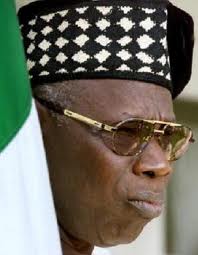Why Obasanjo’s reform agenda failed

Excerpts from Olusegun Obasanjo: The Presidential Legacy (1999- 2000)
Okonjo-Iweala, Yayale Ahmed: The two arrowheads being blamed in the book for the failure of reforms
AS the earth remains and globalisation and political forces prevail over the affairs of men, it appears more controversial books will continue to roll out in the press about men of yesteryears in Nigeria. At the Abeokuta Presidential Library tomorrow, yet another book edited by a notable professor will be publicly presented. But the book entitled Olusegun Obasanjo: The Presidential Legacy (1999-2007) on the Obasanjo years that promises to raise more dust about men and women of yesteryears has identified two key arrowheads of the Obasanjo reform agenda whose actions and inactions actually paralysed the reform agenda that would have changed Nigeria’s fortune.
According to the book, edited by Prof. Oladipo Akinkugbe, Alhaji Ahmed Joda, Prof. Oye Ibidapo-Obe and Prof. Friday Okonofua, the Obasanjo administration’s reform agenda suffered huge reverses largely because of the unsavoury attitude of two arrowheads from the political wing of the administration and the bureaucracy.
According to the book in two volumes to be released tomorrow, two of the actors fingered to have been instrumental in the events that shaped the failure of the administration’s reform were the Minister of Finance (2003-2006) Dr. Ngozi Okonjo-Iweala and the then Head of the Civil Service of the Federation (2000-2007), Alhaji Mahmud Yayale Ahmed.
According to chapter two of the book, which features public service reforms, with a sub-head “Managing the political gladiators: The dramatis personae”, (Pages 92-100), although the key actors of the reform agenda then consisted of political appointee drivers (PAD) within the economic team, namely, Dr. Ngozi Okonjo Iweala, Minister of Finance who was also Chairperson Steering Committee on Reforms, (SCR), Malam, Nasir Ahmad el-Rufai, Minister of the Federal Capital Territory as Chairman of the Public Service Reform Team (PSRT) under the SRC and Mrs. Oby Ezekwesili, initially in charge of Budget Monitoring and Price Intelligence (BMPIU) and later minister of Education; and top bureaucracy drivers (TBDs) comprising Mahmud Yayale Ahmed, the Head of the Civil Service of the Federation; Ambassador Ahmed Al-Gazali, the Chairman of the Federal Civil service Commission (FCSC and the Permanent Secretaries, Dr. Okonjo Iweala and Yayale Ahmed should be held responsible for the failure of the reform agenda.
For the author of chapter two, the reasons are not too far to seek: The two camps, political appointee drivers and the top bureaucracy drivers spearheaded by the two actors (Okonjo-Iweala & Yayale) were involved this way: “The two camps had emerged from two divergent backgrounds and their approach and commitment to the reforms were greatly influenced by a combination of their antecedents, professional experience and the imperative of protecting their corporate existence. The two camps were mutually suspicious of each other, justifiably so because of their glaringly different approach…”
Specifically, the book describes the then Head of Service as a “fox” of some sort who was caught in the web of hypocrisy of how to manage the delicate balance when it comes to loyalty between the Service and the Public Interest. Under a sub-head, “A Bureaucrat as a Fox”, it is written of him thus: “If there was a man who knew how to manage and cage the lion/tiger-like spirit of OBJ in driving his reforms, it was Alhaji Mahmud Yayale Ahmed. Yahale Ahmed was always a step ahead of getting Obasanjo to believe that he was leading the reforms, whereas underneath his public postures were strong scepticisms, possibly borne out of OBJ’s antecedent and the moral cosnscience of Yayale, a high flyer who needed to protect both his less fortunate colleagues and the interest of his geopolitical region….”(P.97).
According to the book, the then Head of Service till the last days of the Obasanjo administration was a visiting member of the cabinet that reduced ministries from 31 to 21. Then a 4-man implementation committee comprising the then SGF, FCT Minister, HCSF and DG BPSR was constituted and its recommendation was adopted. But under the HCSF, Ahmed, the same office continued to use the old the old structures of 31 ministries as basis for deployment of ministers.
But when the then President Obasanjo was told, according to the account in the book, (p.100), the Head of service was directed to withdraw the circular ad the Head of Service complied.
However, the basis for lack of continuity in policy from the Obasanjo administration to the Yar’dua’s was attributed to the antics of the Yayale Ahmed in the book according to an account which runs thus on page 100:
“However, on 30 May, 2007, i.e barely 24 hours after the departure of OBJ, a service –wide circular emerged from the Office of the head of the civil service of the federation announcing posting of directors, “following the approval of the president”. The new cabinet of President Yar’Adua constituted 6 weeks later was on the basis of realigned/merged structure of 21 ministries but the bureaucracy that was to support it was operating on the full complement of permanent secretaries and directorate officers of the old structure of 31 ministries…” That was how the Yar’adua government did not flow from the predecessor’s.
In the same vein, this is what the book records of Dr Okonjo-Iweala as the focal point of the reform agenda where she could not function effectively contrary to the media perception then:
“…The elaborate institutional arrangement approved by the president to coordinate, manage and drive reforms (NCR), which had the President as Chairman and the Steering Committee on Reforms (SCR) chaired by Dr Ngozi Okonjo-Iweala, in her capacity as Chairman of the Economic Team, was good but was only on paper. Dr okonjo-Iweala was preoccupied with the international demands of her job and debt relief negotiations. She was neither able to get the president to inaugurate the national Council on Reforms, nor was she herself able to get down to holding inaugural meeting of the Steering Committee on Reforms of which she was Chairman before she resigned from the cabinet suddenly in the first week of August 2006 under curious circumstances… (p.98)
The book records that but for the diligence of Malam Nasir el-Rufai, the reform agenda of the administration would have been blacked out through action and inaction of the two actors that have been highlighted.
The book records Mandela’s gratitude to Obasanjo (in the foreword) and his role in the Commonwealth politics that shaped decision to release him.
The dispassionate contributors in the following: Professor Akin Mabogunje, who wrote on “The man Obasanjo”, Dr Bode Agusto who wrote on “ Finance-Domestic and International; Irene N.Chigbue, “Privatisation”; Joseph Makoju, “The Power Sector”, Yemi Akinseye George, “Separation of Powers Federal/State Relations; Matthew Hassan Kukah, “Civil Society”, Dr Goke Adegoroye, “Public Service Reforms”; Martin L Agwai, “De-politicisation of armed Forces”, Vincent Olunloyo, “Science & Technology”, Chief Emeka Anyaoku “International Affairs”, The late Professor Olusanya, “Peace Security & Conflict Resolution”.
The book scanned through by The Guardian is not “a praise and worship session” for former President Obasanjo according to the coordinating editor, Professor Oladipo Akinkugbe who will clock 80 in July this year. He told The Guardian in his library on Sunday that former President Obasanjo was not allowed to see the scripts written by some of the best brains the country can be proud of.
Public service reforms:
THE dramatis personae of the public service reforms of President Olusegun Obasanjo consisted of the political appointee drivers (PADs) within the Economic Team, namely: Dr. Ngozi Okonjo-Iweala, Minister of Finance, who was also chairperson, Steering Committee on Reforms (SCR), Malam Nasir Ahmed el-Rufai, Minister of the Federal Capital Territory (FCT), as Chairman of the Public Service Reform Team (PSRT) under the SRC, and to a much lesser extent, Mrs. Oby Ezekwesili, initially in charge of the Budget Monitoring and Price Intelligence Unit (BMPIU), later minister of Education; and on the other hand, the top bureaucracy drivers (TBDs) comprising: Mahmud Yayale Ahmed, the head of the Civil Service of the Federation; Ambassador Ahmed Al-Gazali, the chairman of the Federal Civil Service Commission (FCSC); and the Permanent Secretaries.
The two camps had emerged from two divergent backgrounds and their approach and commitment to the reforms were greatly influenced by a combination of their antecedents, professional experience and the imperative of protecting their corporate existence. The two camps were manually suspicious of each other; justifiably so because of their glaringly different approach. Okonjo-Iweala was a top technocrat from the World Bank, a Bretton-Wood institution, whose track record of public sector reforms is a complicity of right sizing as a major element of bringing down the cost of governance. She, therefore, carried an unenviable baggage of credibility in the reform process. The private sector experience, tenure at the BPE and emerging success at the Federal Capital Territory had convinced el-Rufai that the civil service must demonstrate competence and adopt global best practice; his nudging that the reforms must be fast-tracked if the administration was to record any success before the expiration of its tenure was seen as an avoidable haste. Yayale Ahmed, the arrowhead of the TBDs, was a high-flyer who rose to the position of permanent secretary in the civil service of his home state barely seven years after graduation. At the time of his transfer to the federal service on GL 16 in 1986, nine years after completing the National Youth Service Corps scheme (NYSC), most of his mates at graduation, who started their career at the federal civil service were under GL 13. He felt a moral responsibility to protect the career of these colleagues, or so it seemed.
For the entire top hierarchy of the bureaucracy, the antecedent of Obasanjo as a military head of state demanded that the bureaucracy led by the head of the civil service should exercise caution in accepting that another reform be foisted on the civil service. It is a well acknowledged fact that till date the two major actions of government that had the greatest negative impact on the civil service were the arbitrary and sudden purge of 1975 and Decree 43 of 1988. Both were initiated and implemented by military regimes. The 1975 purge literally decapitated the service by removing the best, most experienced and most promising officers whose career had straddled the colonial administration and the administration of the emerging republic and were seen as the symbol of the effective transfer of power from the colonialists. Decree 43 of 1988, promulgated by General Ibrahim Badamasi Babangida as military president, led to the abolition of the Office of the Head of the Civil Service of Federation (OHCSF), whose functions were subsumed under the secretary to the government of the federation, and the incapacitation of the FCSC, which had most of its functions transferred in the main to the ministries, extra-Ministerial Departments and Agencies (MDAs). The aftermath was the unbridled influx of low quality personnel into the civil service at career levels for above their knowledge, experience and capabilities. The cumulative impact of these interventions was the general decay that began to creep into the civil service system in early 1980s and continues to manifest as the loss of civil service vitality, standard of performance and cohesion; the emergence of a culture of side-lining time-tested procedures and processes; and the loss of officers’ self-respect and integrity.
The struggle for supremacy in the driving of the reform had begun even before my appointment as the DG BPSR and President Obasanjo was managing it. I found, for example, that the file that contained briefs relating to the establishment of BPSR showed that Dr. Ngozi Okonjo-Iweala had questioned the rationale of having a bureau under the OHCSF to coordinate all reforms and having secured the approval of the president to restrict the BPSR to the civil service, she had gone ahead to suspend the release of the N50 million take-off grant earmarked for the Bureau.
As a seasoned administrator, hitherto the right-hand man of SGF, I knew that such an action meant that the civil service reform was dead on arrival! My appointment as someone who was acceptable to the Economic Team, was seem as a smart move by both Yayale Ahmed and President Obasanjo to break the impasse. I too was conscious of the imperative of sustaining the building on the confidence capital of the political appointee drivers (PADs) without betraying the trust of the top bureaucracy drivers (TBDs), my natural constituency as a civil servant. I had to stress to the minister of Finance the need to recognise ab, initio that government reforms are essentially reforms of the workforce of government (i.e. the bureaucracy) and therefore cannot be implemented ex situ; and that the success and sustenance of any reform were contingent upon its internalisation by the bureaucracy service-wide. The minister was not fully convinced that a public service reform under the OHCSF would achieve the success they were expecting but she obliged to release the take-off grant and wished me success! I kept harnessing the positive disposition of the political office holders involved in the reform process and bringing them in alignment with those of the top hierarchy of the civil service.
Political will means no one is made to lose face
President Obasanjo, fondly called OBJ, operated in the mould of a master strategist. He maintained special relationships with all the principal actors and drivers of his reform. He ensured that each was not in doubt that he/she had his listening ears and enjoyed his confidence but he was focused on his goal and was determined to achieve it. No one was made to lose face and there were many instances where his strategy played out.
The first case was the political power play that led to the untimely exit of his first head of the civil service of the federation, Mr. Abu Obe, who was appointed on June 10, 1999 and relieved of his appointment unceremoniously on December 18, 2000. The story was that Abu Obe was seen as an obstacle by some high profile politicians, who were sponsoring some preferential transfers into the mainstream civil service. The Vice-President, Alhaji Atiku Abubakar, Turakin Adamawa, was alleged to have played a masterly role in both the untimely exit of Abu Obe and the choice of Yayale Ahmed as his replacement. Yayale’s entry into the Federal Civil Service in 1986 was as secretary of the Customs, Immigration and Prisons Board (CIPB), where he met Atiku Abubakar, then deputy director Customs. Yayale’s professional contact with Atiku was said to have left such lasting impression that on becoming the vice-president he felt obliged to gladly support Yayale to achieve his long nurtured ambition of becoming the head of the civil service of the federation. OBJ appointed Yayale and soon after, Obe secured an appointment with the United Nations.
A similar case played out in the case of Mr. Akin Arikawe, the pioneer director general of the Debt Management Office, who was relieved of his appointment based on accusations by certain key members of the Economic Management Team. Buoyed by the tactful management of the situation by Yayale Ahmed, OBJ later discovered that Arikawe was wrongly accused and he was subsequently appointed Permanent Secretary.
The Stakeholders’ Workshop of Ministers, Permanent Secretaries and Chief Executives of Federal Government agencies held to consider and adopt “Delivering Service in Nigeria: A Roadmap,” the document of the Wendy Thomson led Team. The document had recommended “the establishment of a dedicated unit, staffed with the right people and resources to work with people across government and the wider community in executing transformational change in a few selected services so as to provide impetus for promoting better service delivery across government.” The consensus among participants, except Mr. Ad’Obe Obe and the SGF, was that with the establishment of the BPSR, there was no need to establish a separate unit for SERVICOM; rather the BPSR should create a department dedicated to Service Delivery.
Obasanjo had taken time off from the workshop after the opening ceremony to attend to other state duties and was not around when discussion on this aspect of the report took place. On his return to the workshop on the second and final day, he made statements to the effect that Ms Wendy Thomson was already very used to Ad’Obe to the extent that Ad’Obe could call her up in the middle of the night to inquire on how to facilitate the programme; and that such rapport, which was necessary for the success of a new programme, should not be lost. The president’s decision to save SERVICECOM as a separate entity from the BPSR ensured that Ad’Obe was not disenchanted and the president continued to enjoy his support for the reforms.
A Bureaucrat as a Fox
If there was one man who knew how to manage and cage the lion/tiger-like spirit of OBJ in driving his reforms, it was Alhaji Mahmud Yayale Ahmed. Ahmed was always a step ahead in getting OBJ to believe that he was leading the reforms, whereas underneath his public postures were strong scepticisms, possibly borne out of OBJ’s antecedent and the moral conscience of Yayale, a high-flyer who needed to protect both his less fortunate colleagues and the interest of his geo-political region. When in 2004 OBJ was beginning to exhibit uneasiness about the commitment of civil servants to his reforms, Ahmed promptly organised a three-day retreat for Permanent Secretaries in ASCON Badagry in August 2004.
For any discerning mind, Yayale’s keynote address at the retreat titled: “Self-Realisation and the Process of Change in the Civil Service: The Role of Permanent Secretaries” was a pointer to his strategy of managing the political appointee reform drivers on one hand and OBJ on the other. He said:
“There is a need not only to jump into the reforms but dive into them so as to strategically influence what happens beneath the surface and courageously manage the intricacies on the surface… Considering the challenges posed by Mr. President and the global challenges of the 21st Century, which compel the civil service as the foremost surviving institution in any polity to review itself constantly with a view to conforming and remaining relevant, there should not be any doubt about the collective resolve within the system to remain in the vanguard of change that will positively impact on the lives of the citizenry. Any other contrary action will require self-advice or introspection in the context of self-realisation.” (Nigeria Public Service Reform: The Vision and Challenges, pp 9-19; Goke Adegoroye ed. 2005).
On the last day of the retreat, Yayale got OBJ to come to Badagry to chair the closing session and close the retreat. As soon as the president arrived, Yayale took him through the process of the self-assessment, self-realisation and renewed commitment that participants had gone through over the three days and followed it with a joint statement of unalloyed commitment which all permanent secretaries publicly pledged to the president on the reforms. OBJ was convinced that he now had a group of permanent secretaries who were super-charged for reforms. Indeed, so convinced was the President that he publicly apologised at the venue for earlier questioning the integrity of Alhaji Garba Buwai, whom he had directed the head of the civil service to sack, based on wrong accusation of his minister.
It would be wrong to think that OBJ was fooled because five months later, in January 2005, he directed the head of the civil service to carry out an assessment of all permanent secretaries. Unknown to the head of the civil service, the president had gone to work using his own network to carry out a similar exercise. When the two met to compare notes, as many as 17 permanent secretaries out of 40 had their jobs on the line. For the first time, the courage and dexterity of Yayale in defending his colleagues were taxed and stretched to the limits, but he succeeded in reducing the number to five who were eventually dropped for performing below expectation.
This axing of permanent secretaries notwithstanding, Yayale continued to adopt caution as his strategy in the implementation of the reforms. The key political appointee drivers saw through the head of the civil service and believed that he was not ready to move the civil service segment of the reform. But Yayale, as a seasoned administrator, had a perfect excuse. The elaborate institutional arrangement approved by the president to coordinate, manage and drive the reforms, namely: the National Council on Reforms (NCR) which had the president as chairman and the Steering Committee on Reforms (SCR) chaired by Okonjo-Iweala, in her capacity as chairman of the Economic Team, was good but was only on paper. Okonjo-Iweala was preoccupied with the international demands for her job and debt relief negotiations. She was neither able to get the president to inaugurate the National Council on Reforms, nor was she herself able to get down to holding an inaugural meeting of the Steering Committee on Reforms of which she was chairman before she resigned from the cabinet suddenly in the first week of August 2006 under curious circumstances.
As it turned out, the Steering Committee on Reforms never met under Obasanjo as president and a late effort to inaugurate the National Council on Reforms towards the end of his tenure did not materialise. But for the effort of el-Rufai, who had to create another organisational layer for the management of the public service reform, the BPSR might have remained in limbo throughout Obasanjo’s tenure.
As a leader, OBJ had enormous perception. He was always conscious that beneath the public postures of Yayale as the top bureaucrat driver of the public service reforms, his body language often betrayed a cynical mind. In August 2005, at a presidential retreat on public sector reforms and public-private partnership, the president in his note of thanks to the chairmen of the plenary sessions, said of the head of the civil service of the federation as follows:
“As a civil servant, the head of the civil service is often caught between loyalty to the civil service his constituency and national interest; but I am happy to say that more often than not, he has stood on the path of national interest.” (Beyond Yours Faithfully by Goke Adegoroye, 2010).
In his capacity as the head of the civil service of the federation, Yayale was never short of ideas in terms of making Obasanjo believe that he was as committed as the el-Rufai led team in driving the public service reforms. As soon as the wave of restructuring of the MDAs gathered momentum and the el-Rufai led team started discussing the rationalisation of ministries and agencies, Yayale forwarded to the president a proposal for the structural re-alignment/merger of the ministries from 31 to 21 ministries. As head of the civil service he was not unaware that the proposal would lead to reduced manning levels and consequently redundancy for several officers, particularly at the directorate levels, for which the administration would need another level of political courage to address. To compound the problem, unregulated transfers and regularisation by the Federal Civil Service Commission had produced many directors and deputy directors who had long been waiting in line for their deployment and for whom the head of the civil service must have felt a sense of moral and official responsibility to resolve their case. In other words, the head of the civil service knew that he was going to face pressures from both of these groups; but he had a point to prove.
The proposal, described earlier under restructuring, received accolades of the president who got the Federal Executive Council (FEC) to approve a four-man committee, comprising the SGF, minister of FCT, HCSF and DG BPSR to implement it. The committee immediately went to work and submitted its report, which was adopted, but the HCSF continued to use the old structures of 31 ministries as basis for his deployment of directors. When the situation was brought to the attention of the president, he promptly directed the head of the civil service to withdraw the circular and the HCSF complied. However, on May 30, 2007, i.e. barely 24 hours after the departure of OBJ, a service-wide circular emerged from the office of the head of the civil service of the federation announcing the posting of directors, “following the approval of the president”! The new cabinet of President Yar’Adua, constituted six weeks later, was on the basis of the realigned/merged structure of 21 ministries but the bureaucracy that was to support it was operating the full complement of permanent secretaries and directorate officers of the old structure of 31 ministries. The struggle of the individual ministers to have their independence found ready allies in the permanent secretaries and directors on ground and before long were back to the status quo ante.
Peace, security and conflict resolution
Conclusion:
The assessment of Obasanjo’s performance that emerges from this chapter is that it is a combination of success and failures. His success in securing the cancellation of a substantial amount of the nation’s debt to international creditors, and a reduction of the rest is commendable. So also is his achievement in the field of telecommunications, particularly the introduction of the Global System of Mobile Communication (GSM), which has considerably facilitated and popularised telephone communications in the country. His intensification of the privatisation policy is equally commendable, as it has feed the various sectors of the economy from the stranglehold of inefficiency and corruption characteristic of such sectors under governmental control. It has, in the process, enlarged the private sector, and helped to lessen corruption and waste. It must be observed, though, that this privatisation process has not been as transparent as it ought to be, with the result that it has tended to concentrate wealth in a few hands, creating a new business oligarch, with access to the innermost recesses of governmental power, and widening the gap between the few rich and powerful, and the overwhelming majority of the poor.
Equally commendable is Obasanjo’s fight against corruption, though the establishment of the Independent Corrupt Practices Commission (ICPC), and particularly the Economic and Financial Crimes Commission (EFCC), which has had some limited success and has helped, to some extent, to redeem the country’s image as a haven of corruption. However, there remain some concern and problem created by the modus operandi and operations of the EFCC, which sometimes creates the impression of a lack of concern with due process. However, the administration’s seeming penchant for intolerance of opposition and disobedience of court orders and injunctions tended to show a lack of respect for the rule of law and constitutionalism. The posture is contrary to Obasanjo’s statement, expressed at a meeting in Addis Ababa in November 1990, that “African leaders must (show) scrupulous adherence to the rule of law and respect human rights.” His failure to deal effectively with the eradication of poverty and his heating up the polity by some of his utterances and activities have equally not helped to deepen the democratisation process.
One must note the failure of Obasanjo’s administration to ensure the security of people and property; for democracy is believed to entail freedom from danger, anxiety or fear. Certainly, Nigeria cannot be said to be free: what with the constant and rising spate of violence, assassinations, arid armed robberies, usually resulting in the killing of innocent Nigerians. If the country is not secure, in this sense, it cannot be peaceful. A recent survey conducted by the Global Peace Index, taking into account such factors as the level of violence, organised crime, and political instability, described Nigeria as one of the least peaceful nations in the world, with a ranking of 117 out of the 121 countries surveyed. There is, however, a mitigating factor that should be considered in the assessment of his administration with regard to security in the country. This is the consideration that the security situation inherited by the succeeding regimes to the Abacha administration was so bad that it was impossible to deal with it effectively in the eight years of the administration of Obasanjo. This may, perhaps, be part of the explanation for Obasanjo’s being tempted to seek an extension of his tenure. It must be mentioned, also, that his depoliticisation of the armed forces, a move which has made it much more difficult for groups and individuals, within and outside the armed forces, to use them for the subversion of democracy in the country, is commendable.
On the African regional and international scene, Obasanjo performed beautifully well. Indeed, this is the high watermark, the forte of his administration, yielding considerable dividends for the country and showing him as a foremost Pan Africanist and advocate of continental unity.
Overall, it cannot be denied that the foundations of democracy, albeit still fragile and shaky, have been laid in the country during Obasanjo’s eight years in office. What remains is for his successors to build on the foundations by deepening and consolidating democratic processes in the country, through the strengthening of the various institutions necessary and vital to the democratisation process. In this respect, particular attention needs to be paid to the Police Force. Other security forces also need to be strengthened, with emphasis on greater and more effective cooperation and collaboration among them.
Fortunately, Obasanjo’s administration had set in motion such a process before its terminal date in office. Prior to the assumption of office by Obasanjo, the security forces were not effectively coordinated. There was a tendency for each organisation to approach the Head of State directly. But that changed during Obasanjo’s tenure. His administration established a forum enabling the highest leadership strata of the security forces and organisations to meet weekly to deliberate on the security situation and related matters in the country. His administration also established a Joint Security Community Meeting of the Military, Police, Customs, Immigration, Prisons, Federal Road Safety Corps, and the Civil Defence, to look at and advise on national security. These initiatives and institutional innovations constitute a most admirable legacy of Obasanjo to the country. His successors should vigorously pursue, advance and improve on these initiatives and innovations. The Judiciary did well under Obasanjo’s administration, living up to its (the Judiciary’s) legendary reputation as the last hope of the common people, a far cry from its performance under military rule.
The present administration should build on the foundations, avoiding its weaknesses through policy reforms aimed at poverty eradication and more commitment to constitutional government and the rule of law, electoral reform and compassionate governance. With a commitment to fairness, justice and social compassion, his successors will create a national environment conducive to the achievement and consolidation of peace, security, stability and development in the country.
Finance domestic and international
Conclusion:
Even the most ardent critic would agree that during the eight years of the Obasanjo’s administration, the economy experienced significant growth. The output of the nation increased five-fold, inflation was brought down to single digit; and the rate at which prime businesses borrowed fell to around 10 per cent. Crude oil prices were favourable but the government did not squander the additional revenues. The administration reined in spending and the government built up savings. Part of the savings was used to amortise the country’s indebtedness to the Paris Club of Creditors. On the external side, strong import revenues from favourable crude oil prices were well managed and the country built reserves that were used to stabilise exchange rates. The performance of the real sector was also good and agriculture, telecommunications, trading and financial services were the principal engines of growth. Although substantial investments were made in the power sector, power generation did not increase significantly. This is because most of the gas-fired power plants built did not have adequate supply of gas to fire them.
During this period, government passed laws and built institutions that would ensure that the major reforms were sustained. Some of the institutions built, with relevant legislation to back them, are the National Pensions Commission, the Debt Management Office and the Budget Monitoring Price Intelligence Unit, which later became the Procurement Commission.
http://www.ngrguardiannews.com/index.php?option=com_content&view=article&id=115163:why-obasanjos-reform-agenda-failed&catid=1:national&Itemid=559






















Leave a Reply